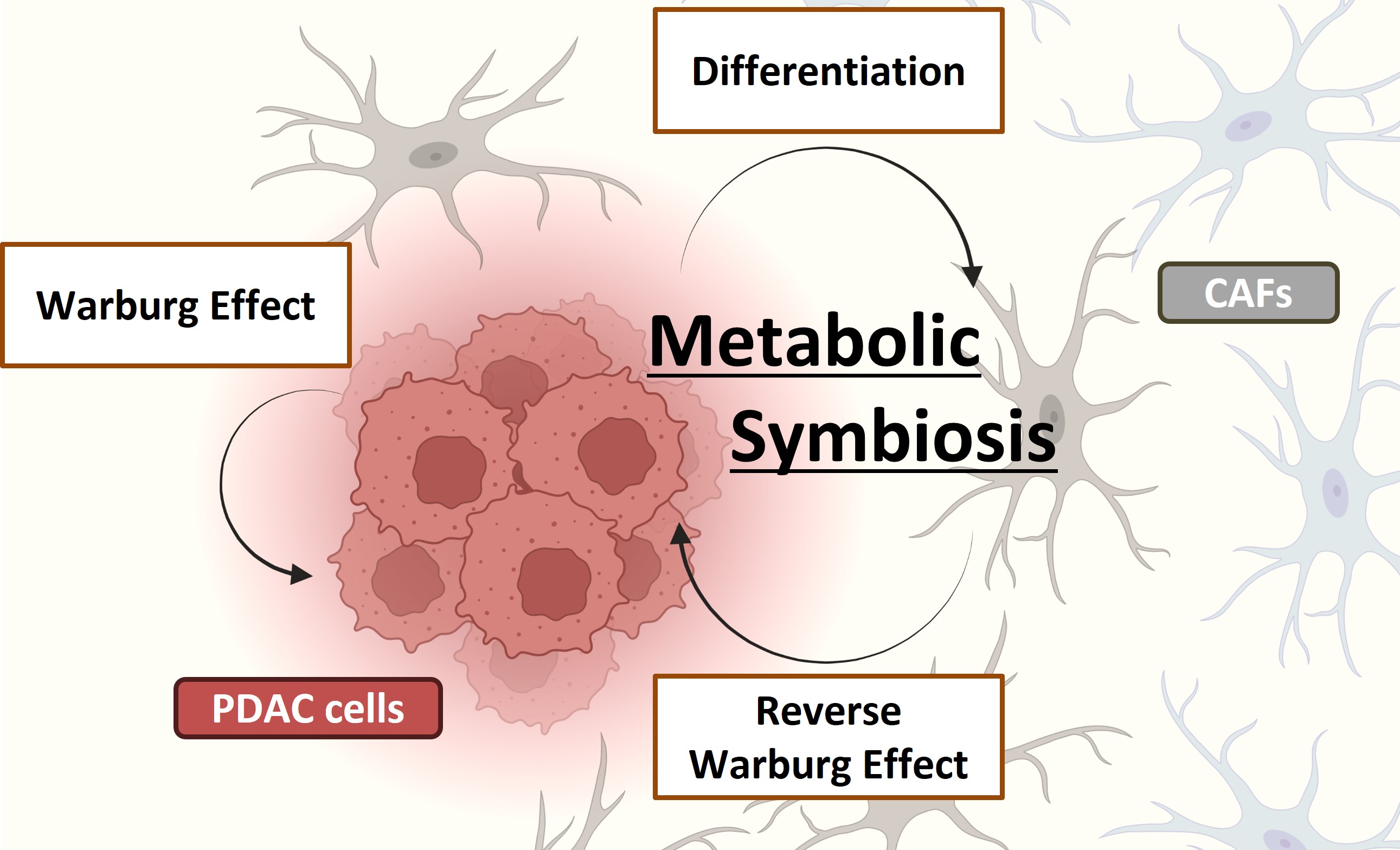Energetic Symbiosis in Pancreatic Tumor Microenvironment
A collaborative research team, led by Research Associate Yuma Nihashi and Group Leader Yasuyuki Kida from the Stem Cell Biotechnology Research Group, has shed light on the energetic interactions in pancreatic cancer. Pancreatic cancer proliferates in a complex environment known as the tumor microenvironment (TME), which comprises various cell types. These cells interact extensively with each other, enhancing cancer growth and developing resistance to medications. To understand this intricate process, the research team used a biomimetic model composed of cancer cells and their supporting Cancer-Associated Fibroblasts (CAFs).
By investigating the dynamics of water-soluble metabolites within the TME, specifically how cancer cells and CAFs produce and utilize energy-supplying substances, the team successfully unraveled part of the communication mechanisms within the TME. These research findings could potentially aid the development of novel treatments targeting metabolic activity within the TME.
This collaborative research was conducted by teams from the University of Tsukuba, Kyushu University, National Cerebral and Cardiovascular Center, and the National Institute of Advanced Industrial Science and Technology (AIST).
Energetic Interactions between Pancreatic Ductal Adenocarcinoma (PDAC) Cells and Cancer-Associated Fibroblasts (CAFs)

Publication
- Title:Decoding Metabolic Symbiosis between Pancreatic Cancer Cells and Cancer-Associated Fibroblasts using cultured Tumor microenvironment
- Authors:Yuma Nihashi, Xiaoyu Song, Masamichi Yamamoto, Daiki Setoyama, Yasuyuki S. Kida.
- Journal:International Journal of Molecular Sciences